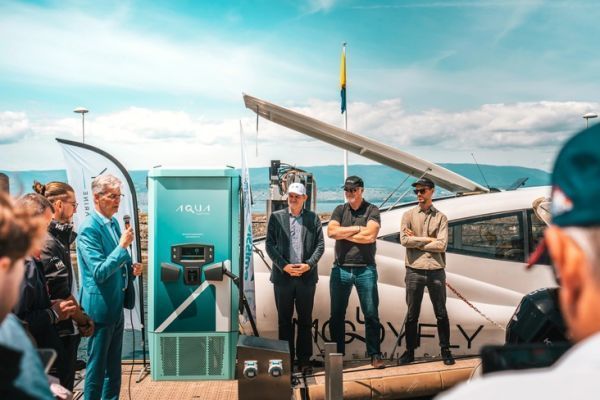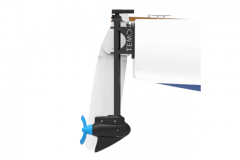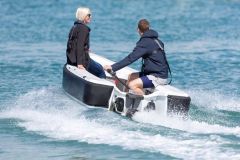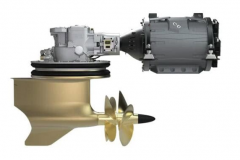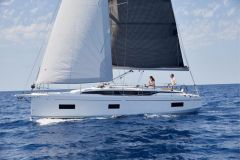Weenav inaugurates the first rapid marine bollard on Lake Geneva in Thonon
A new milestone in the electrification of the marine sector has been reached on Lake Geneva. Over the weekend, the port of Thonon-les-Bains inaugurated the basin's first marine fast-charging station, with a 75 kW DC output. The charging point is specifically dedicated to electric boats, and is part of a dynamic energy transition supported by a number of players, including manufacturer Weenav.
A CCS2 terminal for fast charging at port sites
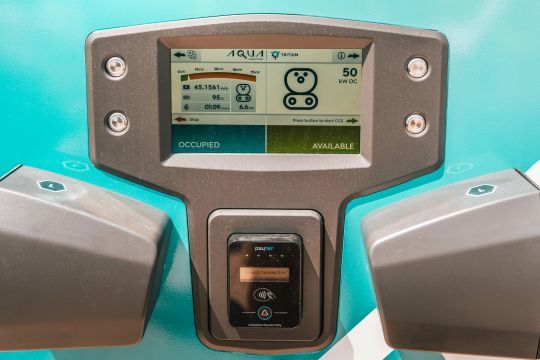
The equipment installed is an Aqua superPower bollard capable of simultaneously delivering 75 kW to two boats via CCS2 connectors, a standard already in use in the electric car industry. What sets this device apart is its compatibility with intelligent communication systems between boat and bollard, and its ability to recharge 70% of a battery in around twenty minutes.
Positioned close to the harbor master's office and intended for passing vessels, this infrastructure marks a step forward for inland ports, which are beginning to equip themselves to meet the needs of electric propulsion.
Weenav and Aqua superPower: guaranteed interoperability
Weenav, present at the inauguration, develops electric propulsion systems for professional and pleasure boating. Its KRONOS motors feature a Combo CCS2 plug as standard, facilitating connection to recharging stations without the need for an additional interface. This technical choice, based on ISO 15118 and DIN SPEC 70121 standards, enables dynamic charge management, while ensuring a high level of safety.
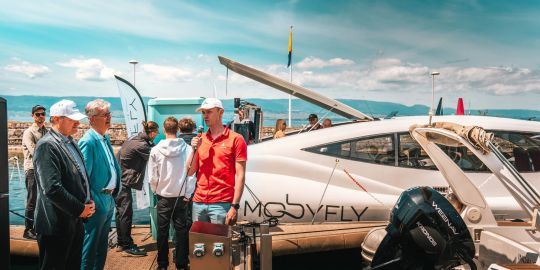
Thanks to this native compatibility, equipped boats can benefit from fast charging, with no additional installation or adaptation costs, on the entire Aqua network currently being deployed in France and Europe.
Optimized charging for everyday use
Weenav boasts a typical recharge time of 20-90% in 20 minutes, which meets the operating constraints of service boats or busy yachtsmen. The system is designed to adapt to all types of units, without the need for additional external boxes, simplifying on-board integration.
This approach makes it possible to imagine a network of intelligent terminals at port level, capable of supplying on-demand power to new generations of electric boats.
A first on Lake Geneva, an underlying trend
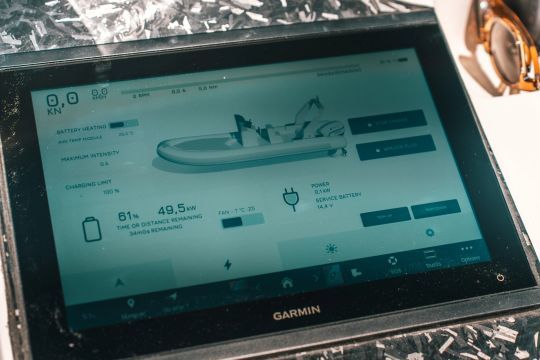
The installation of this first fast marine CCS charging station on Lake Geneva is part of a wider movement to transform port infrastructures. Local authorities and managers of river and lake ports are beginning to integrate recharging into their development plans, driven by fleet growth and environmental constraints.
The example of Thonon-les-Bains shows that it is possible, even on inland waterways, to offer modern, interoperable solutions ready to support the energy transition in the marine sector.

 /
/ 